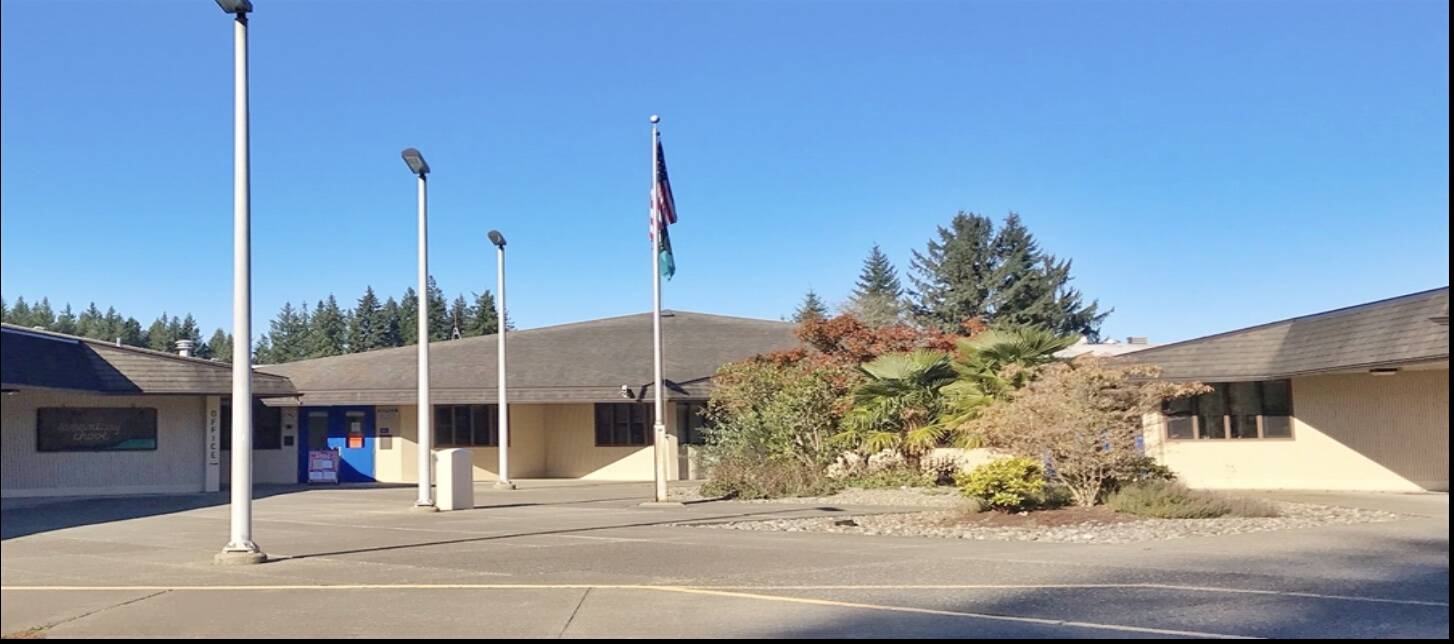Voters in the Elma School District rejected by a wide margin a proposed $66 million bond that would’ve funded construction of new classrooms and facilities for the quickly-growing district.
About 1,800 Elma School District voters cast their ballots in the Feb. 14 special election, with about 65% of voters rejecting the measure and 35% voting in support. About 100 of the ballots came from Mason County, where the bond fared slightly better, but only by about 2%.
The 20-year bond would have garnered property taxes from owners in the district — about $2.68 per $1,000 of assessed value.
Much of the bond’s funding was aimed to increase student capacity for the fast growing district and ease the strain on bulging classrooms. For that purpose, bond funding had devoted about $45 million to the construction of a new intermediate elementary school on the grounds of Elma Elementary.
According to Elma Superintendent Chris Nesmith, the bond was about giving voters a choice to housing extra students. The district has grown by about 170 students in the last year and a half, and Elma Elementary is one of the largest in the state, currently serving 750 students while a typical elementary school serves under 500.
The district has to pay extra money to teachers whose class sizes are large, Nesmith said.
Those extra students still need to be accommodated, which, given the failed bond, will likely be in the form of portable classrooms, Nesmith said.
“We had the ability to either build (a new school) or buy portables, so now we are going to look at moving forward on buying portables,” Nesmith said in an interview, adding, “We felt it was more upfront to give the community a vote before we spent the amount of money on portables that we would be spending.”
The district will discuss financial options surrounding portable classrooms at a meeting March 1, at 6 p.m. at Elma Elementary. The bond failed after about a year of outreach and workshops from a planning committee.
The bond also would have funded a $15 million renovation to the district’s athletic fields on the grounds of Elma Elementary. Another $2.8 million would have expanded congested parking areas, while the district’s 65-year-old Career and Technical Education and science buildings at Elma High School also would have seen a $2.5 million boost.
A 60% supermajority — which the measure fell short of by 25 percentage points — was required to pass the bond. Voters in the Elma School district haven’t approved a bond since a $4 million ask in 1994. Proposed bonds in 2010, 2014, 2015, 2020, and now, 2023, have all failed.
Ocosta levy
Ocosta voters approved a replacement Educational Procedures and Operations (EP&O) levy on the Feb. 14 special election ballot, securing funding for extracurricular programs and transportation once current funding expires at the end of 2023.
Nearly 1,200 Ocosta School District voters cast their ballots, with 59% in favor of the levy and 41% opposed. A little more than 200 of the votes were from Pacific County, where 67% of the electorate favored the levy, while 57% of Grays Harbor County voters, who make up most of the district, approved the measure.
The three-year levy will garner from $1.8 million to $1.9 million each year, drawing property taxes from owners in the district at a rate of $1.44 per $1,000 in 2024. That rate is projected to drop by $0.04 in 2025 and another $0.03 in 2026.
Based on current home value assessments, the levy will cost $27 per month, or $324 per year, for a homeowner with a property valued at $225,000, according to the district.
EP&O levies fund school district needs, including curriculum materials, text books, furniture and athletics, that state contributions don’t cover. The levy supplies 13% of the district’s overall budget, according to Ocosta Superintendent Heather Sweet.
“I first want to thank the South Beach community for supporting our students by passing the levy,” Sweet said in an email. “We are excited that our community continually supports the students in our district. We have always passed our levies in Ocosta, but were unsure if the current economy would be a factor in their decision to vote ‘yes.’”
Ocosta is currently running a Capital Projects levy, which pays for building improvements, at a rate of $0.42 per $1,000 of assessed value, but that tax will drop off at the end of 2023, Sweet said.
Voter turnout
About 8,800 voters were registered for the 2023 Grays Harbor special election, and about 2,700 submitted ballots — about a 30% voter turnout, according to the Grays Harbor County Auditor’s website. That’s a typical turnout for a spring special election, said Scott Turnbull, election administrator for Grays Harbor County.
Contact reporter Clayton Franke at 406-552-3917 or clayton.franke@thedailyworld.com.


